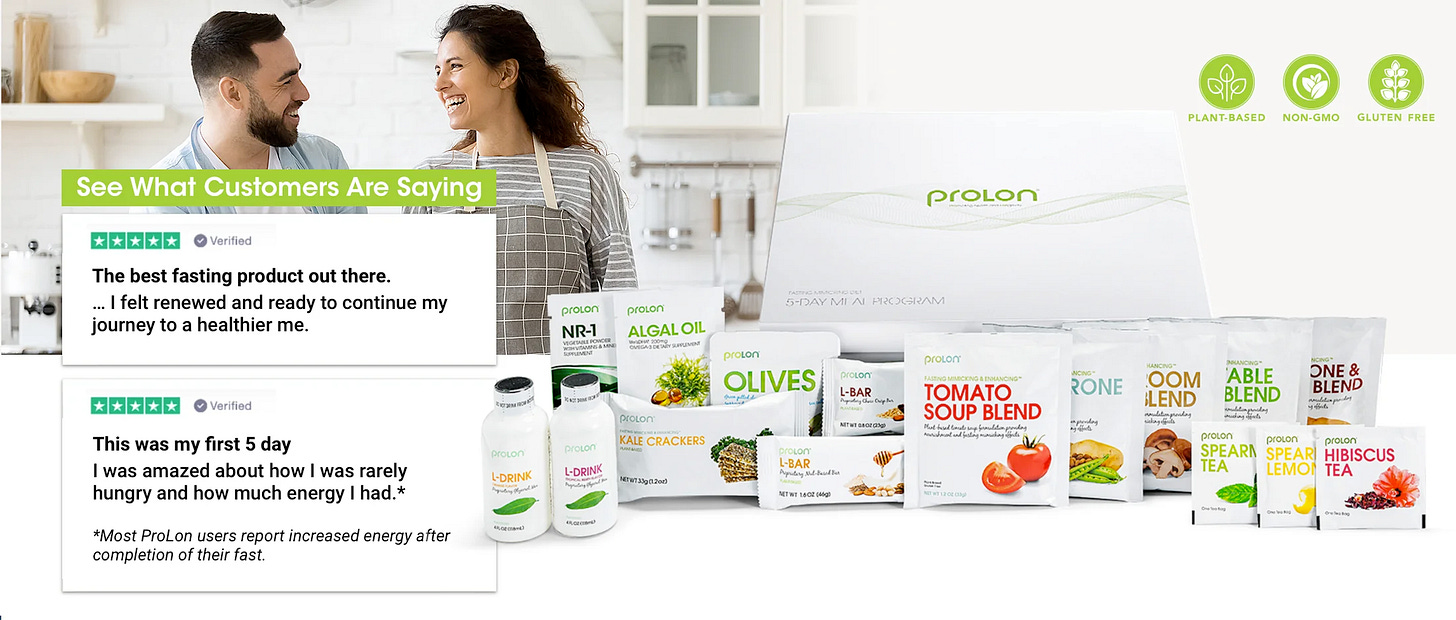Personal Science Week - 230504 Non-Standard Treatments
Safe, non-standard treatments to consider when nothing else seems to work
Personal scientists regularly tweak themselves and the world about them, often to solve or optimize a specific health issue. But you don’t necessarily need to do something complicated to see a real difference.
This week we discuss some safe ideas you may not have considered.
Non-Standard Safe Treatments to Try
When I mention my interest in Personal Science, people often tell me their stories about somebody who successfully treated themselves or a loved one using a simple technique they learned about, often by accident, from their own experimentation. While many of these ideas seem pretty whacko, the fact that they worked should not be ignored, and I think they’re worth considering if you find yourself stuck with a particularly tricky situation that you haven’t been able to defeat through more conventional means. Whether it’s obesity, skin or gut problems, allergies, or a host of similarly annoying ailments, it’s often the simplest techniques that work best.
Here’s a partial list:
Fasting
I’m always surprised how few people have never gone more than a few hours between meals, and I’ve lost track of the number of people who’ve told me their problems went away after a brief period of not eating. My theory is that too-regular feeding causes internal microbes to expect the steady nutrition, and this comes at the expense of other microbes which might be better for health overall but which are crowded out by the ones that are better at sucking up nutrients quickly.
Humans were not designed to go an entire lifetime eating three (or more) regular meals a day. You can try various fasting protocols (Google “one meal a day”, “intermittent fasting”, etc.), but for most of us the easiest one is to go back to something every one of your ancestors did: religious fasting. Whatever your current beliefs might be, on this one I recommend you follow whatever faith tradition your family has always practiced (Lent for Christians, Yom Kippur for Jews, Ramadan for Muslims). If only for a few days a year, you’ll find it unexpectedly productive.
If you want to try a more serious fast — five or more days with nothing but water — one alternative to consider is the “fasting mimicking diet” (FMD) developed by USC longevity researcher Valter Longo. The idea is to give yourself just enough specific nutrients to trick your body into thinking you’re fasting, while preventing some of the hunger, fatigue or other side effects that come from several days without food.
Although instructions for a DIY version of the 5-day FMD are easy to find, I recommend first-timers just buy the $170 Prolon kit version, complete with all foods and supplement you’ll need. (Read my experience in detail, including references for how to do it yourself).
Fluoride
Though for most people it’s a perfectly safe and effective tooth decay preventative, some of us get a terrible reaction to this chemical that is ubiquitous in US cities. A friend who grew up in India began to notice annoying digestive issues soon after he moved to the US for graduate school. For years, he assumed it was the American food, because the problems disappeared whenever he returned to India. Oddly, he had no symptoms when traveling through Europe or to many rural parts of the US. Eventually, he traced it to the drinking water.
This is an especially interesting issue because, unlike the other ideas on this list, you probably won’t uncover this through an elimination diet. If you live in a city with fluoridated water, the chemical saturates everything. You won’t be able to eat at restaurants, you’ll need special shower attachments, and you’ll spend a fortune on bottled water.
Incidentally I’ve never understood how people still defend mass fluoridation of drinking water. Yes, on the whole it improves oral hygiene, but you could get the same effect by simply giving away fluoride rinse, maybe at school like they do in Japan. Why force it on everyone? The US is one of the few remaining countries to do this. Most of Europe — London, Germany, Switzerland — rejects it. Even Vancouver BC refuses to add it to their drinking water.

Mammal Products
I first heard this from Viome’s Chief Science Officer Momo Vuyisich, who tells how he reversed 15 years of suffering by simply giving up all products from mammals. Chicken and fish are fine; beef and milk — no. Apparently we humans, being mammals, sometimes have a genetic variant related to a sugar molecule, Neu5gc, which can confuse the immune system into attacking itself, resulting over time in arthritis and worse.
Other Restrictive Diets
I mention the ones above because I’m surprised how few people have heard of them (or seriously tried them, like fasting), but there are many other foods that, when eliminated, bring surprising relief. I’m sure you’ve heard of gluten-free, dairy-free, vegetarian/vegan, and numerous suggested no-nos like MSG, sugar, artificial anything, etc. But there are others you may not have heard of that might be worth a shot:
Nightshade Vegetables: some people have a bad reaction to some of the chemicals in plans that belong to the Solanaceae, including tomatoes, eggplant, potatoes, peppers.
Low-Histamine Diet: Avoid bananas, strawberries, chocolate, and basically anything that’s been fermented. If you have histamine sensitivity, you’ll also need to watch for foods that trigger histamine release from your own cells — a complicated process that is different for everyone and will require some experimentation.
Specific Carbohydrate Diet (SCD): A friend who suffered for years from debilitating gut problems got instant relief when he stumbled upon this diet originally developed to combat celiac disease. It’s much more complicated than simply giving up gluten, though, but well worth the trouble if you learn the guidelines. If this is you, I strongly recommend getting in touch with Ali Arjomand at Modulla Health. Nobody knows more.
FODMAP Diet: this was a lifesaver to me a few years ago when I developed a serious case of bloating after receiving antibiotics before a surgery. Monash University is the definitive source for research on FODMAPs. Although their $7.99 iPhone app gives red/green/yellow warnings for every food they’ve tested, I recommend you skip it and get a free version instead which works offline. (Paid subscribers can read a detailed account of my experience.)
More Links of Interest
Fig is the most comprehensive app for food advice. Scan a barcode, or enter any food or brand to see details about what it contains and how it affects various diets. A paltry 5 free scans/month if you just want to try it; If you’re serious about a specific food, then you should just pay the $40/year for the full version.
CaffeineInformer.com is the best resource for uncovering hidden sources of caffeine. For example, their calculator says I can drink more coffee from McDonald’s than Panera.

Don’t bother with those “food sensitivity tests”. The results I’ve seen are all over the map. Five tests will give six different conclusions. Waste of money. Maybe a future Personal Science Week will go into more detail.
See my review of the new book We the Scientists, by Pulitzer prizewinner Amy Dockser Marcus. It’s a short easy read that summarizes how a group of parents were forced to become scientists in order to care for their children with rare diseases. The notes in the back are full of excellent resources if you ever find yourself looking for answers where traditional medicine has failed.
About Personal Science
Personal Scientists use science for personal reasons, not as part of a job. We treat science as a verb — something you do — not as a noun, and we certainly don't use it as a synonym for “truth” or “cool facts about nature”.
Follow us each week for more tips and thoughts. Meanwhile, let us know about your own discoveries.

